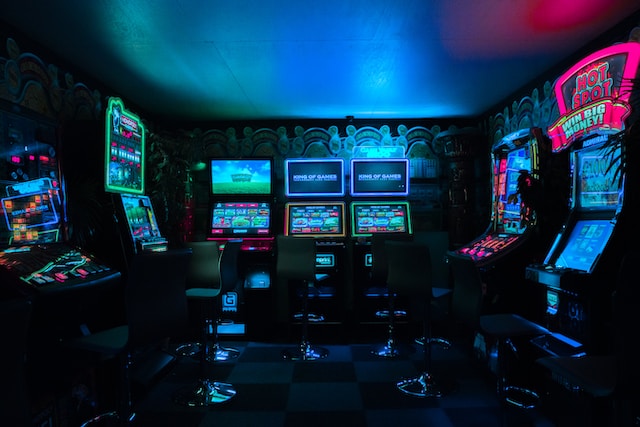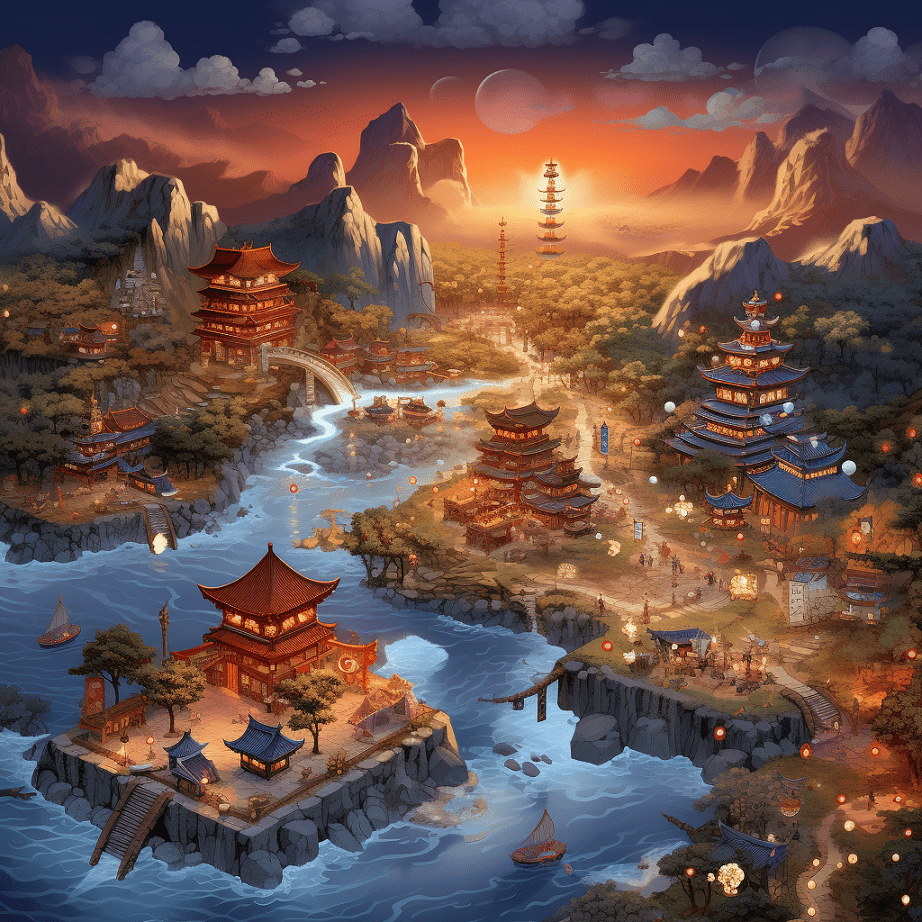
Games are one of the most common entertainment activities that people indulge in in their spare or idle time. Games have been a part of our life and have existed even the ancient times as a sport or form of leisure and entertainment. Surely you can name certain games of the old or new existing games of today.
In this article, get to know the importance of game names in establishing the game’s identity to the public. Not only that, you can learn the concepts of creating Game Names, the creative process behind them, and how Game names relate to the game’s essence. Read on!

There are a variety of reasons why a certain game name became overly popular and well-established. Aside from enjoyable gameplay, engaging in-game storylines, and marketing, good game name branding is also a huge plus factor to connect new games with gamers.
Before games became a center of attraction to gamers, game companies spend a lot of time formulating unique game name ideas that they envision to be a stepping stone for more future game variants. They thoroughly research and formulate game name titles that will pick the interest of their target market, and try to make a game out of the concept. Gaming companies will most likely create games based on their previous generation titles that were successful and well-known to players. This ensures that they will own the game name itself, and own the unique gameplay mechanics it offers.
There are a lot of gaming companies that became successful in establishing a solid game name brand. One example is Square Enix which successfully established a series of game variants under one game name: the Final Fantasy Series. To date, there are already 16 main Final Fantasy titles (Final Fantasy I to XVI), including hundreds of variants under the same name umbrella. Final Fantasy is just one of the hundreds of game titles of Square Enix. We still haven’t mentioned the Dragon Quest Series, which is another main title with many game versions under the same name.
Other examples of influential game names to the gaming community are the Super Mario Bros Series and the Pokemon Series, both owned and licensed under Nintendo. These games have a solid fan base market despite the main game having repeated formula, mechanics, and gameplay—save for the few alterations in storylines plus much-improved graphics.
Peter Main, one of the former executives of Nintendo America, quoted this line in a statement article from the company: “The name of the game is the game”, by which he meant that game names are as much as important as the games themselves. One of the cornerstones of Nintendo is to create game titles that will capture the imagination of the audience, the same as movie titles. They want their games to be memorable so people can easily go out to a store and look for it with ease. It was with this same approach that Nintendo was able to acquire vast amounts of users all over the world.
But having a good game name is sometimes not enough. There are underdog game titles that became a huge hit for their unique and newer game experience, thus becoming a competing force to well-established brands in the game market share. An example of this is Minecraft, developed and created by Mojang Synergies AB. The game introduced to players a new game concept of survival-building-RPG in a huge sandbox open-world. To make matters more interesting, its boxed-like graphical design is very similar to a 2D isometric 8-bit game—but in 3D. Minecraft’s success transformed the concept of modern-day gaming. Other gaming companies tried copying Minecraft’s survival gameplay and sandbox concept. Examples of which are Craftsman, Raft, Subnautica, Grounded, and Valheim. Minecraft was officially bought by Microsoft including all its game name titles and variants for a stunning 2.5 billion dollars—a proof that unique gameplay experience, partnered with a commendable game name identity can truly make any newbie game popular.

Do you work in the gaming industry and are looking for ways how to formulate the best game names? Or perhaps you are one of those indie hobbyists who create programs and experiment with codes to create games? Whether you are a game developer or an app developer, it is important to consider proper game names that will someday make their way into the history of popular games.
Naming is not simply coming up with random words and putting them together as one. There is an art in creating game names and it involves a lot of considerations. Your game name must have sense, has relevance to the game itself, and portrays simplicity; or sometimes, complexity. Not only that, but it also requires some level of creativity and skill to muster the correct choice of words. Although creating non-existent words as game titles are not a bad idea too.
Game name creation is one of the many complex processes involved in video game development. Game development is a complex process by which its subprocesses usually run in parallel during the development stages. This includes art design, game concepts, builds, alpha and beta tests, game mechanics, and player engagements. All of these have influenced what game name will be drawn based on the result of the game development. In this section, we summarized 5 creative processes involved in developing game names that will help you formulate a relevant and amazing game name.
Take note that: There are a lot of approaches to creating Game Names. The below processes are merely suggestions from us that we hopefully can help with game creation. These ideas are based on the commonly observed game names and we try to simplify them as best as we could in 5 ways.
The game theme may also refer to the game’s genre. It could also refer to the overall game design, thematic point of view, and target audience. A few relevant questions that fall under this process are: what is the game’s genre? (RPG, action, simulation, etc); who are my target users? Is the game for ages 10 and above? For toddlers? For adults? What is the overall theme of the game? Is the game gore? Adventure-pack? Colorful? Anime-like? Etc.
Knowing the game theme is the very first step in game name creation as it gives proper direction to the name you are trying to create.
This step involves drafting possible titles based on the gameplay and plot—regardless of the theme of the game. This step includes name generation according to the plot, lore, and some contents inside the game (history, landmarks, items, names of protagonists, etc). Additionally, this step may also cover the creation of game names according to political, social, or religious factors within the game (external power influencing the game, third-party characters that will appear in the game, etc). We can also use the current generation, era, or timeline to which the game is set (future, past, present, post-apocalyptic, etc). To further understand this step, take a look at some examples below.

There are adopted games that were based on a book, anime series, and comics. You’ll notice that these games will always use the material source as the title of the game itself. Examples are Naruto Shippuden, The Witcher Series, The Amazing Spiderman, and Middle Earth: Shadow of Mordor.
Blending words refers to the process of combining two distinct words to create a new meaning. You can use this method to create a new game name, or even create a non-existent word (such as Minecraft or Starcraft). You may also consider using self-made words, for as long as those words are relevant and included in your game’s story. Examples are the Kingdoms of Amalur, Patapon, Flyff, and Arcania.
What’s more important than drawing ideas from sources instead? Try to evaluate your game mechanics and look for possible competitors of the game. Find out what kind of game title they partner their game with. Look for other synonymous words or ideas that can represent the game you are trying to develop. And lastly, don’t forget to keep formulating game ideas until you can combine them or draw the best out of the many.
After undergoing the tedious process of creating the Game Name, it is now time to consult peers and co-workers about the drafted Game names. Feedback from peers is also a good way to take impressions and may give you an overview of how consumers will react toward your game title.
The 4th process is the most important because once the Game name is finalized, it will be harder to redo steps 1 to 3 in case there are changes needed in the name. Finalizing the game title seals it to the game and will become the title that you will introduce to the market during pre-selling and pre-release.
You’ll never know when your game will be popular to the point a sequel or part 2 is needed. Anticipate this step in cases you will need to move away from the existing game name and move to the next one. Take note that you may always reuse the existing game name and add designations or numbers to it to indicate the sequel.
Thankfully, there is an easier way to create game names available for you to use. We call these name tools Game Name Generators. A Game Name Generator is programmed to produce many game name ideas and suggestions that users can freely use for their game development.
Game Name Generators are also AI-powered tools that can provide on-point and relevant game name ideas that will surely help users in developing game titles. Some game name generators also have an option for keyword input so that you can somehow modify the name suggestions based on the keywords you entered. For example, if you input the terms “warrior” and “medieval”, the name generator will quickly generate game names that are relevant to those words (e.g. Knighthood, Warrior’s Crusade, Legend of Camelot, and The Swordsmen of the West).
Other advantages of using Game Name Generators in game development are saving time in name creation, a faster way to formulate game names, and free-to-use that can be used indefinitely.
Gaming is an important part of our life that gives us a form of leisure and entertainment. The popularity of most games that we know is due to the great gameplay experience partnered with an easy-to-recall game title or name.
The name of the game is the game itself! That is according to Peter Main, who has proven that this approach to treatment of game names has been successful as seen with the success of Nintendo in acquiring users across the globe. That is why a good game name is as good as its gameplay.
While game name creation might seem easy to a few people, it is a tedious process that takes time, skill, and creativity. We summarized five of the common processes behind creating game names:
Lastly, feel free to use online helpful tools such as Game Name Generators to hasten game name creation and formulation. Game Name Generators are smart AI tools that can give you many name ideas with just a click of a button.
